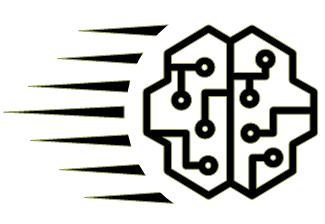FASTER-ΑΙ: Fully Autonomous Safety- and Time-critical Embedded Realization of Artificial Intelligence
Status:
FASTER AI addresses emergent needs to embed machine learning (ML) inference capabilities within hardware infrastructure of critical importance and use. We focus on hardware utilized widely in telecommunications as well as airborne systems and other vehicles. Current ML workflow programming tools are controlled primarily by dominant cloud vendors and overlook non-commodity use, focusing solely on standard AI accelerators. However, as ML inference takes over traditional heuristic- and control-based decision-making in the industry there are major needs to re-purpose that hardware towards the use of ML. Driven by use cases of safety- and time-critical functions, we streamline our ML integration pipeline around three core activities: 1) finding a suitable neural architecture, compressed-enough to fit the constraints of special hardware, 2) achieving multi-stage cross-compilation of critical logic and ML functions and, 3) equipping critical hardware with proper runtime support in order to actuate to data-application demands without sacrificing safety and service time guarantees. Our methodology is effective for current hardware but also future-proof for upcoming architectures or releases of special accelerators used in critical decision-making industries. We strongly believe that the FASTER AI approach is the most sustainable way forward toward digitalizing and creating value out of our existing critical infrastructures while also maintaining a relevant outlook for the future.

HeRD: Modeling Heterogeneous Degradations for Federated Super-Resolution in Satellite Imagery (Jul 2025) Bostan Khan, Seyedhamidreza Mousavi, Masoud Daneshtalab Journal of IEEE Access (IEEE-Access)
Frequency Domain Complex-Valued Convolutional Neural Network (Jul 2025) Mainak Chakraborty, Masood Aryapoor , Masoud Daneshtalab Expert Systems with Applications: X (ESWA: X)
proard: progressive adversarial robustness distillation: provide wide range of robust students (Jul 2025) Seyedhamidreza Mousavi, Seyedali Mousavi, Masoud Daneshtalab International Joint Conference on Neural Networks 2025 (IJCNN 2025)
An Efficient Architecture for Edge AI Federated Learning with Homomorphic Encryption (Jun 2025) Dadmehr Rahbari , Masoud Daneshtalab, Maksim Jenihhin Journal of IEEE Access (IEEE-Access)
Bridging Quantization and Deployment: A Fixed-Point Workflow for FPGA Accelerators (May 2025) Obed Mogaka, Håkan Forsberg, Masoud Daneshtalab 28th IEEE Symposium on Design and Diagnostics of Electronic Circuits and Systems (DDECS 2025)
AdAM: Adaptive Approximate Multiplier for Fault Tolerance in DNN Accelerators (Feb 2025) Mahdi Taheri , Natalia Cherezova , Samira Nazari , Ali Azarpeyvand , Tara Ghasempouri , Masoud Daneshtalab, Jaan Raik , Maksim Jenihhin IEEE Transactions on Device and Materials Reliability (TDMR)
| Partner | Type |
|---|---|
| KTH Royal Institute of Technology | Academic |
| RISE Research Institutes of Sweden | Academic |
| EmbeDL AB | Industrial |
| Ericsson AB | Industrial |
| Saab | Industrial |





